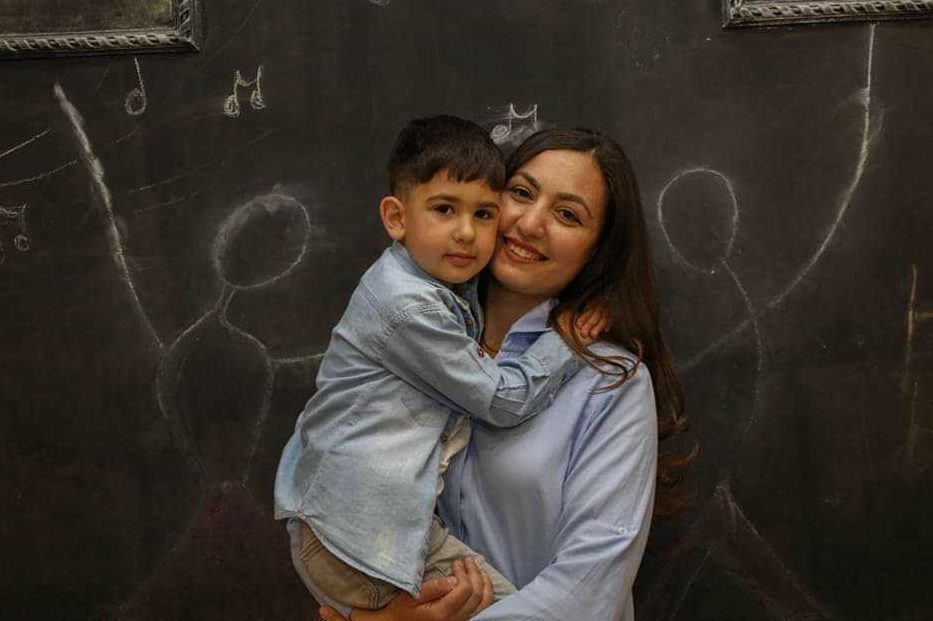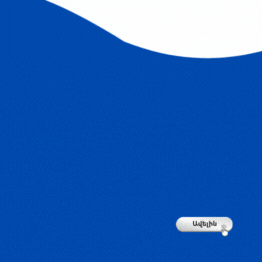Artsakh has been under siege for 258 days. The neighboring enemy is waging an active war on the information platform, targeting the minor girl, and presents as if everything is “good” in Artsakh, and people pass freely through the illegally installed checkpoint.
And the reality is that people in Artsakh are living in the most elementary scenario of genocide. Tatevik Khachatryan, a resident of Artsakh, founder of the “Support Center for Mothers of Artsakh” NGO says in an interview with Iravaban.net.
She states that for a long time she avoided explaining to her child what was happening, why he could not eat his favorite food, but in the conditions of the ongoing blockade, there was a need to present the reality to the child.
“In the beginning, when the shops were not empty yet, I tried to avoid those topics, thinking that it will open again, as it happened once before. Then, when everything got deeper and my child was already asking specific questions, I decided that I should explain the facts in words appropriate to his age. Today, he already knows why the shops are closed, why his bath is not organized as before, why we go everywhere on foot, and why we cannot visit the grave of his dead uncle. Now all my son’s wishes, dreams and thoughts are conditioned by the road. “Let the road open, we will take this for me, we will go to this a place, we will do such a thing” and so on, Tatevik says.
People in Artsakh are undernourished as a result of the blockade that has been going on for about 9 months. Even thinking about healthy food for children seems needless.
“I have always been careful about offering healthy food to my child and sugar did not play an important role in our house, but now there is nothing unhealthy, so of course there are many problems. Balanced eating is an issue of the past, now we only think about not being hungry. However, in all this scarcity, we, mothers try to support each other and we try to share what we have.”
Apart from many problems in the besieged Artsakh, the problem of proper organization of hygiene has also arisen, there are cases when there is no possibility to do laundry or wash hair.
We have begun to use everything sparingly, before I used to add detergent according to the dose to do laundry, but now – “as much as possible”. I don’t have baby gel anymore and I use the liquid soap I have for my baby. Of course, you can count like this for a long time, but it’s boring to constantly remember all that household absurdity, although it’s impossible to forget it either,” our interlocutor notes.
Tatevik’s son should attend school this year. And the problems have already started.
“We haven’t had a problem with immediate medical care yet, but, for example, in connection with the child’s admission to school, we walked with my child from one end of the city to the other for several days, under the hottest sun,” she says.
Tatevik says that there are many moments of despair, but there are very few moments of hope, the future has become uncertain. People try to overcome it by talking to each other, consoling each other.
When asked how they are able to withstand the blockade, she stated that she cannot correctly describe the situation in which they live.
“Perhaps I will just recall the case of death from starvation and everything will be clear as to how we are coping. Many cases will never be heard about, because it is not customary for us to publicize one’s pain and suffering. People “fry in their grief”. It is clear that our endurance was at the expense of a sharp increase in deaths, it was at the expense of miscarriages, it was at the expense of not having new pregnancy cases. In other words, in the most elementary scenario of genocide,” сhe said.
Talking about the enemy’s proposed alternative option of sending aid via the Akna-Stepanakert road, our interlocutor said: “Perhaps there will come a moment when my child will starve to death in front of my eyes and I will not “care” where food will appear at that moment and I will give him some food of unknown origin in order to save my child’s life, because it is a choice between bad and worst. But naturally, if there is a choice between accepting bread from the enemy’s hands or losing what I suffer so much for… Azerbaijan talks about integration, but does not take any steps, it carries out annexation, commits genocide, and it is clear that if it decides to distribute Azerbaijani passports and to make Azerbaijani the rest of Artsakh, my presence, and even more so the presence of my child, will not help.”
About living with Azerbaijani passports, Tatevik said that it would be like being a “donkey martyr”.
“There is an expression “donkey martyr”, it is when your sacrifice is meaningless and doesn’t change anything. For example, getting up after the war and coming to live in Artsakh, knowing that all around you are armed Azerbaijanis, it was a decision that we made responsibly and we knew that it was a sacrifice, but we went for it. It is a different matter when you are already living in the status of a hostage, in famine, in danger of an epidemic, you see what is happening around you: torture, kidnapping, murder, in this case, to continue living in Artsakh as an Azerbaijani, is “to be a donkey martyr”,” Tatevik Khachatryan said.
Hasmik Sargsyan















